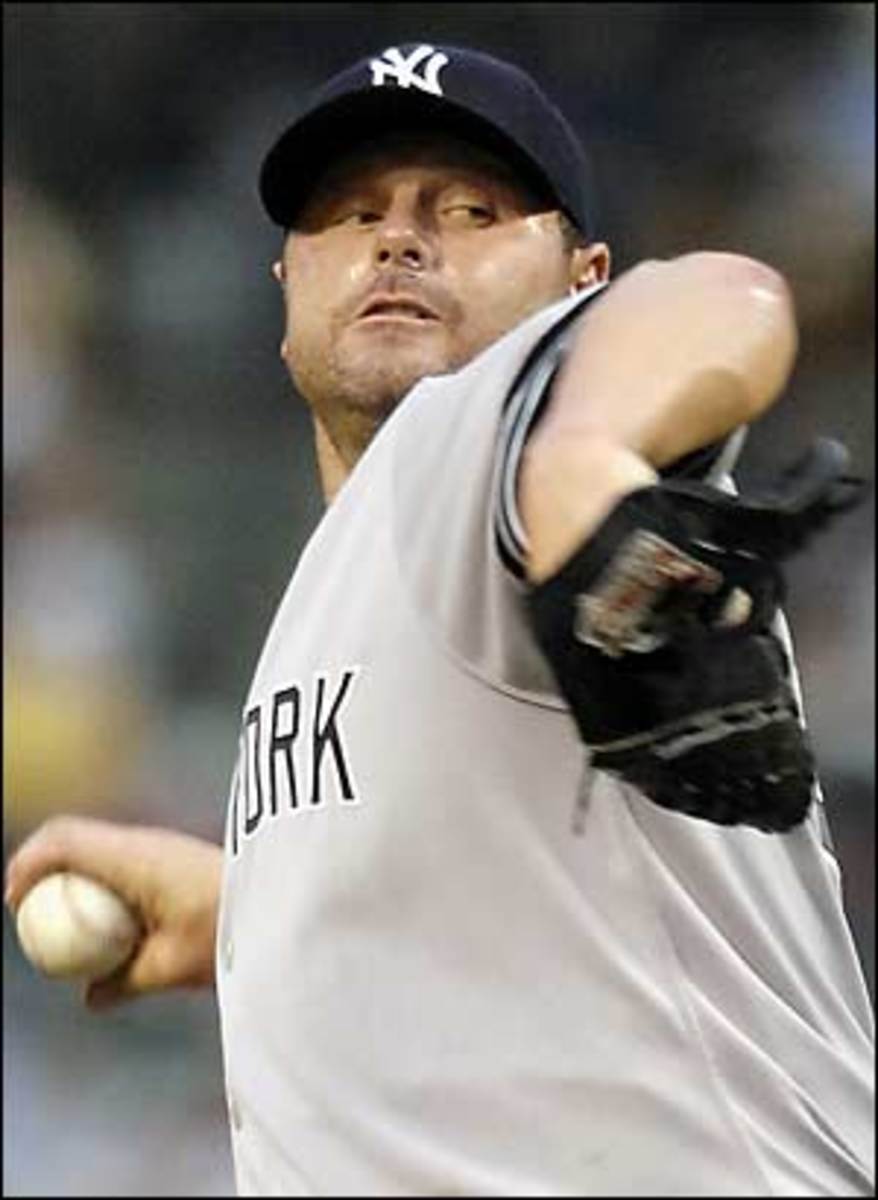
Day of reckoning
While it is fashionable in some circles to bash those of us who have been in the Baseball Writers' Association of America for at least 10 years and are eligible to vote, I have never met a colleague who didn't take the responsibility of voting for the Hall very seriously. People may not agree with the members' votes, but you can be sure that there is plenty of time and energy put into making the decisions.
Like other members, I have done my due diligence in researching each candidate, especially those who fall somewhere in the gray area between being an automatic selection and having no chance. However, there has been a major change in the process of reviewing a candidate's career since I first began voting in 1997. It now goes beyond studying a player's statistics and accomplishments. Today a voter must also be part of the morality police and attempt to determine which players cheated by using performance-enhancing drugs and which ones stayed clean. And assuming you don't categorically rule out cheaters, you also must determine which players -- we're talking Barry Bonds and Roger Clemens here -- had already accomplished enough to be a Hall of Famer before they reportedly began dabbling in steroids and human growth hormone, and which ones needed artificial help to boost them into the Hall-worthy category.
With Mark McGwire on the ballot for the first time last December, I considered from all angles how to treat players who had been associated with or accused of steroid use. In fact it nearly became an obsession until I finally mailed my ballot just before the Dec. 31 deadline. I have commiserated with plenty of other voters over the past year about how to view players in the Steroid Era, and have gotten a wide variety of responses. Clemens being prominently fingered as a steroid user in the Mitchell Report has rekindled those discussions in the past week.
Voters are divided on whether Clemens belongs in the Hall of Fame. The Sporting News'Gerry Fraley, who has covered baseball for a quarter century, believes that voting for Clemens will be easy when his name appears on the ballot. "It's impossible to separate who was and was not using steroids and HGH, and how it influenced performances," Fraley says. "Clemens is clearly a Hall of Famer, and was already a Hall of Famer if he had never won a game from the day he was first alleged to have started using steroids."
Others, such as the Kansas City Star's Bob Dutton, the current BBWAA president, want more information before making a decision. "My initial reaction is 'yes,' but that's all it is, an initial reaction," Dutton says. "It's too early, I think, for anything else."
The Rocky Mountain News' Tracy Ringolsby and the Dayton Daily News' Hal McCoy, two veterans who have been honored in Cooperstown as winners of J.G. Taylor Spink Award for meritorious service to the craft of baseball writing, have differing opinions. Ringolsby says, "I think what this report shows is that baseball, like other sports, went through a period of time that will be forever blemished, but it also shows this was an industry-wide situation, not isolated cases. During his career Clemens was as dominant -- if not the most dominant -- as any pitcher in the game. Hopefully, lessons will be learned from what happened, in that we have a tendency in all phases of life to try and find an edge on our competition and often that edge is used without a full understanding of the long-term implications."
"I won't vote for cheaters," McCoy says. "I said that about Mark McGwire and Sammy Sosa and Barry Bonds. So I have to say it about Roger Clemens, too. He cheated and he wasn't participating on a level playing field with guys who chose to play the game the right way."
I was of the same mind as McCoy last year; my final decision was to automatically disqualify anyone with a steroid cloud. Thus I did not vote for McGwire. However, a year has passed, with more PED speculation and more admissions, all of which has given me a different perspective on the issue. In fact I had an epiphany in the hours leading up to Game 7 of the American League Championship Series at Fenway Park as I stood in the concourse outside the visitors' clubhouse and strained to listen as Cleveland Indians pitcher Paul Byrd verified a San Francisco Chronicle report of his HGH use. It struck me that if Byrd, a guy who looks like Frasier Crane and throws his fastball at a speed barely faster than Tim Wakefield's knuckleball, could be an HGH user, then no one in the game is beyond suspicion. So I now look at every player who has appeared in a major league game from 1988 (an arbitrary date, as it was the first of my 20 years as the Pittsburgh Pirates' beat writer for the Beaver County Times in suburban Pittsburgh) until now has possibly been chemically enhanced.
It may not be the most logical way to look at the issue and it certainly isn't fair. However, I cannot think of a better prism through which to view the players of the past two decades. In regard to Clemens in particular, I can only go by the numbers, and Clemens has 354 wins, 4,672 strikeouts, and a most impressive 3.12 ERA during a career in which the league average has been 4.38. To me, those numbers clearly say Hall of Fame.


































